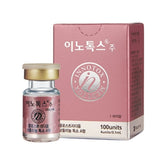Building a Personalized Skincare Routine

Building a Personalized Skincare Routine. In an age where the beauty aisle is brimming with an overwhelming array of skincare products, crafting a personalized skincare routine that caters to your unique complexion needs can be transformative. A customized skincare regimen not only addresses specific concerns but also enhances the natural health and beauty of your skin. This comprehensive guide is designed to help you build a personalized skincare routine that resonates with your skin type, lifestyle, and goals
Building a Personalized Skincare Routine: Assessing Your Skin Type
The first step in building a personalized skincare routine is understanding your skin type. Skin types generally fall into five categories: normal, oily, dry, combination, and sensitive. Each has distinct characteristics and requires different care:
- Normal Skin: Balanced in oil and moisture, normal skin is the least problematic, but it still benefits from a maintenance routine.
- Oily Skin: Characterized by excess sebum, oily skin is prone to acne and requires products that regulate oil production.
- Dry Skin: Often flaky, tight, and dull-looking, dry skin needs hydrating and moisturizing products.
- Combination Skin: A mix of oily and dry areas, combination skin requires a balancing act to address both needs simultaneously.
- Sensitive Skin: Reactive and prone to redness and irritation, sensitive skin needs gentle, non-irritating products.
Understanding Your Skin Concerns
Beyond skin type, consider your specific concerns. Are you looking to combat aging, reduce hyperpigmentation, treat acne, or soothe sensitivity? Your concerns will heavily influence the products and ingredients in your routine.
Building a Personalized Skincare Routine: Core Elements of a Personalized Routine
Cleansing:
Choose a cleanser suited to your skin type gentle for sensitive skin, hydrating for dry skin, or oil-free for oily skin.
Toning:
A good toner can balance your skin's pH and prep it for better absorption of subsequent products.
Moisturizing:
Regardless of skin type, moisturizer is essential. Find one that provides the right level of hydration without causing congestion or greasiness.
Sun Protection:
A broad-spectrum sunscreen is non-negotiable. Daily application can prevent premature aging and protect against harmful UV rays.
Advanced Skincare Steps
Exfoliation:
Exfoliating 1-2 times a week can remove dead skin cells, promote cell turnover, and enhance skin brightness. Choose a physical or chemical exfoliant based on your skin's sensitivity.
Serums and Treatments:
These potent products can address specific concerns like wrinkles, dark spots, or lack of firmness. Look for active ingredients that target your issues.
Eye Creams:
The delicate skin around the eyes needs special attention and can benefit from creams designed to reduce puffiness, dark circles, or crow's feet.
Masks and Specialty Products:
Incorporate masks or targeted treatments for an extra boost as needed. Clay masks for oily skin, hydrating masks for dry skin, and soothing masks for sensitive skin can all be beneficial.
Building a Personalized Skincare Routine: Navigating Ingredients
Ingredients matter. Retinoids are great for anti-aging, salicylic acid for acne, vitamin C for brightness, and hyaluronic acid for hydration. Research and select ingredients that align with your skin goals.
Building Your Routine
Start with the basics and gradually introduce new products. A simple routine might look like this:
Morning:
-
Cleanser
-
Toner
-
Moisturizer with SPF
Evening
- Cleanser
- Exfoliant (a few times per week)
- Serum or treatment
- Moisturizer
- Eye cream
Consistency is Key
Adhering to your routine daily will bring the best results. Skincare is a marathon, not a sprint, and consistency will yield improvements over time.
Building a Personalized Skincare Routine: Adjusting Your Routine
As your skin changes with age, environment, or lifestyle, be prepared to adjust your routine. Regularly assess your skin's condition and make tweaks as needed.
Professional Guidance
A dermatologist or licensed esthetician can provide valuable insights into your skin's needs and help you craft a routine with the right products and ingredients.
The Role of Lifestyle Choices
Your skin reflects your overall health. Diet, hydration, sleep, and stress management are all integral to your skin's appearance.
Testing and Patience
Introduce new products one at a time and give them a chance to work. It can take several weeks to notice changes in your skin.
Building a personalized skincare routine is an act of self-care that pays dividends in the health and appearance of your skin. By carefully selecting and consistently applying the right products for your skin type and concerns, you can maintain a radiant complexion that stands the test of time.





